|
My skin is so precious, but do people see me correctly? I always wonder why I have not seen too many people like me on my screen. It troubles me; it worries me. I cannot go on anymore racking my brain because I feel that I am not scared about or looked after. I feel that as a black woman I am continuously disrespected because I am not well represented. It is like my word does not count. As a lighter-skinned black woman, I am aware of my privilege. I feel the need for my representation and the representation of darker black women because I feel that even though Hollywood has come a long way, there are still many things that need to be worked on. Here are some stats from the diversity report released by UCLA. Learn more here! 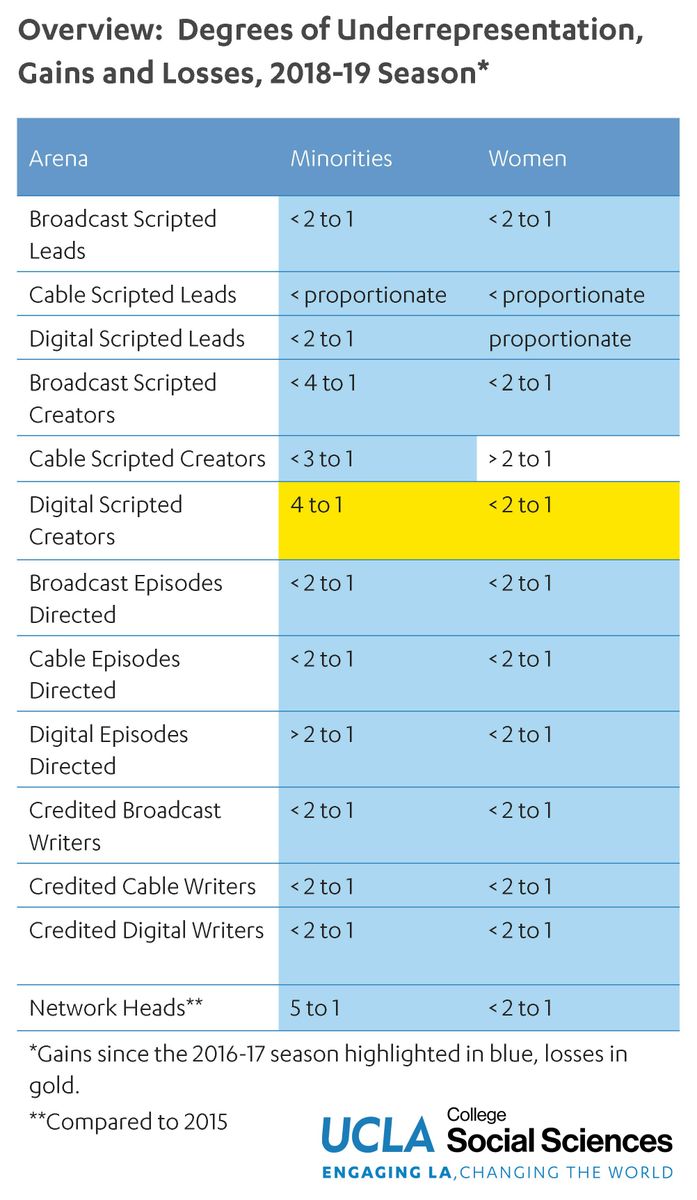 Less than 2 to 1 among film leads (27.6 percent), Less than 3 to 1 among film directors (14.4 percent), Less than 3 to 1 among film writers (13.9 percent), Less than proportionate representation among total actors (32.7 percent), Greater than 4 to 1 among studio heads (9 percent). This is what I mean by Hollywood still has a long way to go. Look I do not need validation from the film and television industry, but I do need accurate representation. Seeing yourself being portrayed inspires many. As much as we want to be known, we want to be known for positive things. I have seen too many black characters on TV be overwritten or not well understood because writers felt that they needed to be “ghetto” to get the point across about black women’s personalities. As I said, things have changed, we are seeing more black characters on our screens and the industry is putting out more movies with minority characters that are leads but the battle is far from over. I plan on emerging into the industry making sure that minorities are represented whether it’s behind the screen on in front. The best way to do that is to start on paper. I plan on making sure that my characters are the best representation of the people who are in my life. I plan on writing for all the black women and girls out there. The stories that I tell stem from my experiences as a black woman so doing that through characters play a big part in my work.
0 Comments
Written by Amelie Tsoungui Messina Remember when the world shut down for at least 3 months? We were all locked in, completely shut out from each other. It was during that time where many of us sought comfort in things we could do online and in person. For us writers, it was either a creative time or a real slump. Writing and articulating the ideas that fly around in our heads is already hard enough, but it can be beneficial to us if we are “forced” to go on with it. What I mean is that as a writer you constantly have to be on your feet thinking about new materials, so quarantine was a good time to develop our millions of ideas. In college, they always tell us, your best ideas come from when you go out and experience things, well we were shut down, so that was not possible. See not everyone is alike, so many people, like me, felt inspired, but there was so little inspiration for others. If being in a pandemic taught me one thing, it is that humans think more alike than anything. We saw a burst of pandemic inspired shorts/scripts come up, and different ways that projects were being made. Here's one short that I watched during quarantine and is about the pandemic. The way I stayed inspired during the pandemic was virtually through my friends, music, and dreams. I am a weird thinker and I follow a very strict routine. Any time that I step out of that routine, I fall apart. I know that sounds horrible, but quarantine tore my routine to shreds, so I decided to turn to friends and music to help me with ideas. I would listen to a song and imagine a movie for that song. My friends would tell me crazy stories and I would find ways to think about how to write a script about it, that lead me to write my first feature film! I stayed very active during quarantine and it has pushed me even more! In a way, it was a physical setback for the industry but a creative push for many writers. I cannot help but think about how many tries during the months before quarantine that I spent trying to come up with ideas that I swore would be the project that “makes” my name. I usually ended up not developing the projects deep enough and therefore discarded them. That is until I took a class that helped me find a way to place my ideas. See the most difficult part of being a screenwriter is the development process. It takes a long time to figure out what makes your screenplay move forward. Another short I watched during quarantine! 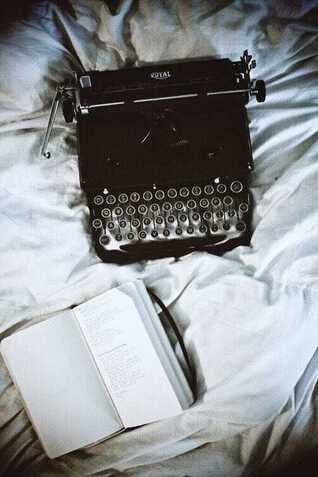 Though we all have the passion that writers do it can be hard or even easy when you are locked in with nothing but your thoughts and the same news cycles about Coronavirus running 24/7. What are some ways you've been finding motivation to write? Comment below or show us your workspace on IG. Tag us @dtdproductions By Meg Moore 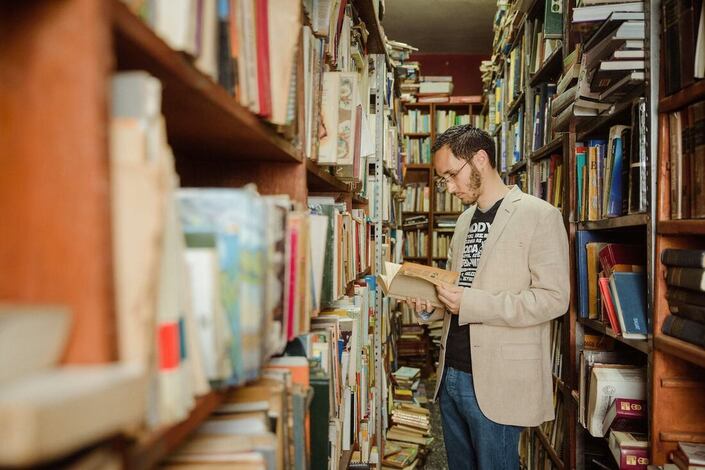 Professional screenwriter Pietro Schito. Professional screenwriter Pietro Schito. “SEE PLOT AND CHARACTER AS ONE THING” Pietro Schito shares on this week's podcast. Dare to Dream Productions Host Bridget Johnson interviews Italian screenwriter, Pietro Schito, on the animation writing process, how to make your own writing more universal, and breaking into the film industry. Pietro began with behind the scenes videography and built up to his success of optioning scripts and being a high demand writer for animation projects. He works in both the Hollywood and international film industries, and owns a production company in Guadalajara, Mexico. Schito’s interview has been edited and condensed for clarity. What is it like being a professional screenwriter working with a variety of studios? Can you tell us a little bit about yourself and how to break into the industry? I started when I was a little kid, I love to grab the family camera and started telling stories with my ninja turtle action figures and what not. When I was at University, when they invited a screenwriter from Disney to give a course on screenwriting. It opened up an entire world for me, it was really something that stuck with me. I discovered all the principles behind a good story, there was a narrative, there was a craft to it, it’s all from human nature. We have the possibility to create stories, it was like, “that’s what I want to do”. Since then I’ve been writing, and I got a scholarship to the New York Film Academy of Los Angeles where I was really forced to write, because it’s an intense program. It’s very practical we wrote two feature films, multiple short films, T.V. pilots and more. The way I was able to break into the industry was by connecting with people at film school and doing my internship where I was offered to get my first feature film produced. I got an option on that and then I came back to Mexico where I started connecting with people in the animation industry. The local animation industry is very active, there’s a group of directors that are working in different types of animation; I started writing for them as well. How to break into the industry? I think if you ask 1,000 people they will give you 1,001 different answers. Everyone has something different. My big experience of being on a big set is doing behind the scene videography for a feature film that was filmed in the same lot where they filmed the Titanic, here in Mexico. The takeaway for me is that you need to put yourself out there, do not be afraid to show your material to people and also to find unconventional ways. Nobody gets through the front door, they all get through a window, so find your window, find something you can do in the industry that will put you closer to other people. So for me, doing behind the scenes videography, meant going to each department of the production and connecting directly with the prop master or academy award-winning actor that I was interviewing, so I got a feel of how the industry works from different points of view. It was a great experience for me. That’s how it started. 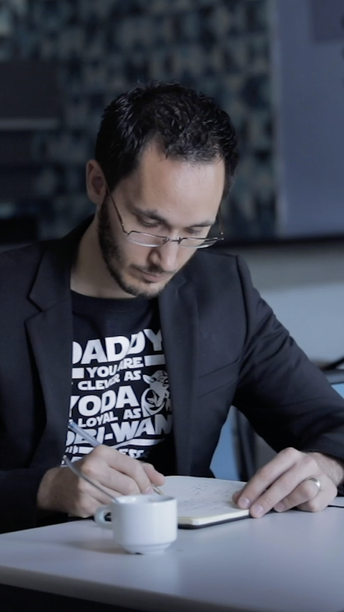 You focus mainly on animation, what is the difference between animation and narrative writing? We might think that the narrative style is different, but it's not really a different structure that you have to implement in animation, there’s still the same --- structure that you use in any movie. What’s different is you have to be a little more direct, especially if you’re writing for kids. If it's an animation directed to kids there are some things that you can and can’t put into an animation. You’re able to be a little bit clearer with what you say, with what the character wants and needs, and they can express it a little less subtly then you find in a feature film. What’s interesting and allowed me to learn a lot from animation was the cycle and the way they produce these movies. If any of you have ever seen a documentary or behind the scenes about a movie from Pixar you learn the process they use, which are reels or animatic, they are like the storyboard of the film with temporary voices. You can play a whole movie, you can write the draft of your script and the story artist brings it to life through rough sketches, and they are edited together so that you can sit down and play your entire story in a rough version. We say in screenwriting, there is nothing better than being able to sit down and see your first draft and hit play and basically watch your movie. Once the reel is completed everybody watches it, and they give feedback. At Pixar, they call it the Brain trust, they get into a room, they do a projector and everyone in the room throws out their notes, they break the story apart and then it's the director’s job to collect the pieces and try together with the writer to make a better version. So it’s a cycle, once you finish one draft, you go right on to the next one, and you watch the animatic. For me it was a big learning experience to be able to, from the time you write, you can sit down to watch your story come to life it’s a long time, and then to be able to write something and then see - sometimes if it’s a specific scene it can be days later, you can see the joke you thought was funny, is not funny, or something you thought would work, a clever line of dialogue of something you wrote into the script, you realize that it’s not working, so you have this great opportunity to work and fix before the movie gets into production. A director friend of mine says “In animation we shouldn't have bad movies because of the animatic, because of the process, you're able to watch it from beginning to end before you get into production.” If it’s not working there, it’s never going to work when you actually go into production. If the scene is not emotional, you can add all the strings and violins you want, but it’s not going to be emotional because of the music. If the animatic works, then everything that is brought in like production design, sound, the actors, everything and the beauty of animation will bring that story to a higher level to connect even more. They do that in advertising as well, if you're producing a quick 30-second ad, it’s still a big production. I remember when I was little in Italy I used to go to this focus group, they would show the animatic for the ad. Recently an agency asked everybody to grab their iPhone and draw some sketches and use their own voice to tell the pitch for the ad. More and more live action productions implement something similar. I invite everybody to try experimenting with this for live action projects. Whatever you can make that’s close to a storyboard - even if it’s your laptop piecing it together -so you can see it from beginning to end. It’s going to be very rough but it will give you an insight to the story that you won't have in any other way. A lot of filmmakers have talked about struggling to find the motivation to write during these crazy times of the pandemic, or even just hitting a writer's block. How do you overcome this? Writer’s block is something that strikes and then for example, in a project if there are specific plot problems, if I am unable to crack the plot of the problem. Sometimes it goes on for weeks or almost months and you're still stuck but I try to think as if writer’s block doesn’t exist because your work is to write and what do I do when I feel like I have no idea? I would do anything else but writing, I still sit down and write. Those times when you’re staring at the screen and the blinking cursor is looking at you and you have no idea what to put on the page - I believe that those afternoons, those long hours of not writing are actually very important. The hard thinking and trying to figure out the story will pay off later. The key to overcome writer’s block is to write a bad version. It’s going to be bad many times before it gets good. It’s humbling because you know it's going to be bad and it’s gonna hurt when you read it, and it’s terrible, but to be able to sit down and write the embarrassingly bad version of your idea - helps you to put things on the page. Then you write it again and again, that’s one way to deal with it. Also, trying to think about what won’t solve the problem. This will never happen in my story. Okay, write it down somewhere. You need to play with the material and to move it, do not stop writing. If you have multiple projects maybe you can explore another project for a little bit. I don't believe in hoping you can dream about the answer, I think you need to sit down and do the work. It helps a lot when you can talk about your story with somebody else. Especially if it’s a plot problem, the right question, even if it’s the worst possible idea that you put on the table - somebody else can give you their take and can somehow get you unstuck. That’s why I love working with director’s and being able to collaborate. The simple act of being able to express the problems of your script can really help you. So if you have a writing group, friends, a mentor or somebody who can help you, listen to you, or even talk aloud. If you’re able to read your dialogue aloud, try to, try to write it down, write down what you feel when you’re stuck, but don’t stop.
an article from a newspaper, I collect it in the Magic Box folder. I have other folders for other ideas and I try to write it down. You need to write down the bad ideas too, something you think you have no use for, sometimes you might get back to later and find something hidden that was there. Have you heard about story dice? There are some apps and dice with icons on them that you throw and force yourself to write a story with those elements. When you have a blank page and you want to find inspiration, I think the best way is to constrain yourself and say I am going to write about this and that. A palm tree and a car accident, setting, Los Angeles, and you try to write a story like that. An exercise I do with students is to bring a black bag and take out random objects from it and then ask people to write a story. Sometimes this constraint seems like it’s limiting you but it’s actually freeing you to have a very interesting idea come out from something that is totally random. How do you make your scripts stand out? What’s unique about the story is you. The more the story comes from yourself and has a deep connection with you, the more personal it is, the more universal it will be. Let’s do an exercise with the people that are listening and watching. Write down the 5 movies that you would watch over and over again. Even if it’s a movie that’s not artistically acclaimed. It’s important to do this exercise without thinking about ourselves as filmmakers. If it’s a guilty pleasure, put it down. We will get back to this and see how it relates to what you write. What are the essential elements of creating characters? Something that I’m learning is that the more you write, the more you understand the character and plot are the same thing. Character is plot and plot is character. The plot is a consequence of who your protagonist is. Sometimes we have the whole plot figured out, and then we do not connect with the protagonist, and that is horrible, because you could have the most interesting story but if there’s not a connection with your main character then you don’t feel as interested. The writer of Finding Nemo and other films says “make me feel”. He has a great TED talk about it. Following the Nemo example, why do we feel for Marty? We start understanding that empathy is not just checking marks, like “okay, something that is really heartbreaking to overcome”. It’s really integrating the concept of the entire movie, what do you want to say? What is the truth that you’re seeking to understand in the movie? Why does your main character believe a lie? Something in their life is not true, but they believe it. In the case of Finding Nemo, they’re taught that the ocean is a dangerous place. I remember from listening to the talks and analysis of the movie - for a lot of time they had it start with an accident where a barracuda eats the wife and all the kids except Nemo. They used to have that spread out throughout the movie but then they decided to put it at the very beginning - that’s something to represent the reason for him to believe that lie. They call it the ghost. It’s a very strong moment in the protagonist's life that makes him see the world in a certain way. Then you have two battling ideas. The idea of freedom, letting go, risk, that’s represented by Dory, and then you have this character that has this real struggle, we have empathy towards this character. What is the worst that can happen to somebody like him? His kid gets kidnapped, and not only that, he needs to cross the entire ocean. So we start understanding that the plot of the movie is not something separate from the main character, but it’s a reflection of his journey, his own arc. On my YouTube channel we have a video analyzing The Joker, and we see some specific elements to create empathy. But that’s only one aspect of it, you can find injustice toward your character or see your character do something good for somebody else, which is the premise of the book, Save the Cat, it invites you to have the character save a cat in the beginning. It’s okay, you can add those things on a superficial level that can help you a little bit, creating empathy, but then you need to understand what is the movie about and why is the story happening to this character? The more you see plot and character as one thing, the better off you will be creating an empathetic character and a movie where the audience can really connect to the character. Think about your own struggle, because that’s real, if you can connect a question that you have or something that's really unique or intimate about your life, then it’s going to be universal. You can have a wonderful film in terms of visuals and style, action scenes and what not, but as you say if they don’t connect then nothing else matters. What are the next steps after you have a finalized script? When you feel like your story is ready, there are two things you should do. One is to start writing the next project, because I see over and over people get a little too attached to their first project but you get to be a good writer by writing project after project. Maybe you already have multiple projects and you want to promote one. Many people finish the script and now what, what can I do with it? How do you find an agent? How do you find a manager? And they're emailing everyone to try to get a connection. I suggest that you go on a different route that is more real personal contact in friendship and getting to know people that are working in the industry. You’re a writer trying to find a producer, help them with their script, - you’re a director, try to find writers and actors. Second, get your work out there, don’t be afraid of people stealing your work or if it's not good enough. Put it out there, create a page and put it on YouTube, make a website out of your screenplay with visuals and try to get it to as many people as possible. The agent, the manager, they will come, when the project already has the attention. There are a lot of scripts out there, but there are very few good stories. So if you think you have a good story it will find its place. But if you keep it in secret and you only tell a few friends and you’re hoping to get an agent out of the blue, that’s unlikely. It can happen, but I think your best shot is to know that you’re more creative than one script, so you can always come up with new ideas, so if you’re detached enough you send it out much more. You can go to contests and pitch festivals but there’s nothing like a direct connection with somebody. Nowadays through Facebook and social media you can get to many people and sometimes you think they will never get back to you but I’ve been surprised in the past where I will contact A list screenwriters and they’re able to sit down and chat and give some mentorship to me. I used to think that they would never answer, and then I started contacting them. You might be surprised. What makes a successful pitch? Try to see the core of your story. Have a killer logline, really work hard on your log line, and try to tell your story as if you're telling a friend about a good movie. Try to structure it so it reflects the structure of your movie and spend a lot of time creating empathy towards the main character. Even if the beginning takes a little longer than the rest of the movie, you want to make sure that you have this connection. You want to have something that hooks you with the character, not trying to impress with a clever plot. Rehearse a lot, try to tell your friends. For me, I'm an introvert it's really hard for me to go out there - but i know friends who are writers and when you see them pitching it’s like oh that's how you do it! But try to tell your story in a way that you feel what you're saying, in a pitching situation keep it short and rehearse. During the pandemic there’s a lot of pitching being done via Zoom, there’s almost no in person pitching in Los Angeles right now. I see people starting to do video pitches, where it’s not live, it's pre-recorded, and they're able to add a little bit of art and music. The person to person connection in the pitches is what you need, to make sure the other person is paying attention. Sometimes the producer is having a bad day, and they're distracted, it might have more to do with them than with your story. Don’t get discouraged. It’s similar to casting, you need to do it often. A suggestion for when you’re practicing your proposal, sometimes depending on the situation it might be good to like with TV, do a pitch for your movie. Have a document that sums up the movie, it’s way easier to read one page. If you can't reduce it to one page then your story has some problems. The full treatment and the script itself will be a lot more, but it will help you first to realize the important blocks of your story. The document normally has a logline (the movie in one sentence), and the rest of the page you fill with the synopsis of the film and then it has your contact. It’s really easy to read and then pass to somebody else - it’s better to have multiple one pages than to have a single script that is finished. If you have ideas, especially for TV, it's better to have multiple TV bibles and maybe one episode that's written then try to have one tv series and write all the episodes. Because, many things can change between pitching your story and getting the green light from a production studio. What was a real breakthrough or realization you had that helped you succeed? There’s a lot, I consider myself as someone who is learning and relearning, you never finish. A breakthrough would be the moment where you realize the writers I admire, they have the same struggle when it comes to sit down and write. Sometimes we feel like we are not good, and we should focus on something else, maybe we feel like the material is horrible, and we have those days when you have self-doubt, imposter syndrome, it creeps in and basically tells you to stop. But then you realize that, even the great directors and writers with multiple awards and series of movies one after the other, they still feel that every day. To sit down and write is painful, and they would also do anything else instead of it. Hearing it from A-list writers and seeing that that is part of the craft, that is what you choose to be when you write, and those are the frustrations that will never go away. It’s similar to when you start exercising, you want to get better, you know it's going to hurt every time. It gets easier but it's still an effort, and multiply that by one thousand when you try to write. It helps you to write every day, try to stick to your schedule. It helps to understand that we analyze movies and scripts once they're finished and produced. So when we read a screenplay we think this is a masterpiece it's going to take me forever to get to this level, but we need to remind ourselves that that’s the final product, that’s the final piece of art, and we never get to see the many rewrites that they went through, and sometimes you hear from directors that every movie is bad in the beginning. It was hard for me to believe that until I got into direct contact with some of the people I admired. That’s what everybody goes through, so don’t give up when you feel like your material is not good. 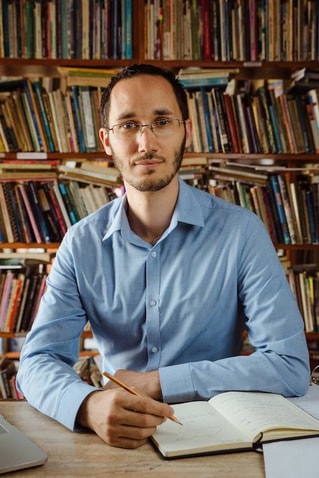 Pietro Schito, an Italian screenwriter writes in a bookstore. Pietro Schito, an Italian screenwriter writes in a bookstore. Earlier you mentioned the five movies? You don’t have a project and you're thinking of starting something from scratch, you have the blank page and you don’t know what you should write about. The worst thing to do is chase what is popular, because by the time you write it and the time the movie gets made and released, everything will change, but most importantly it's not connected to yourself. This exercise allows you to see which the films resonate with you. If you look at the list you created with your five films, and if you analyze them through the eyes of the protagonist and their struggle and journey then there's something that connects with you maybe it's a guilty pleasure or it's not artistic but there something about that story that moves you somehow and usually people find out that there is a theme between these 5 movies and that its very informative. Sometimes it's surprising what the stories have in common, but maybe you can write a story with those themes. It’s an exercise that is not always so revealing but I’ve seen people crying after doing it, discovering something about themselves during the exercise. Especially before getting into making them - we think we like them because of the special effects, or the action but there's always something deeper. What’s next for you?
I’m in the middle of writing three animated feature films, and rewriting a short film that is going to be a combination of live action and CGI created characters. We’re waiting for some feedback on some of the projects, and they are very close to production. It’s something that’s good news for me, at least two of the three are very close to production, so I'm focusing on that and I hope to be able to tell you more very soon about those. Pietro's offering a FREE consultation for our audience members! Apply here. Learn Screenwriting on WriteSomethingGreat.com that helps screenwriters from around the world improve their work. By Meg Moore 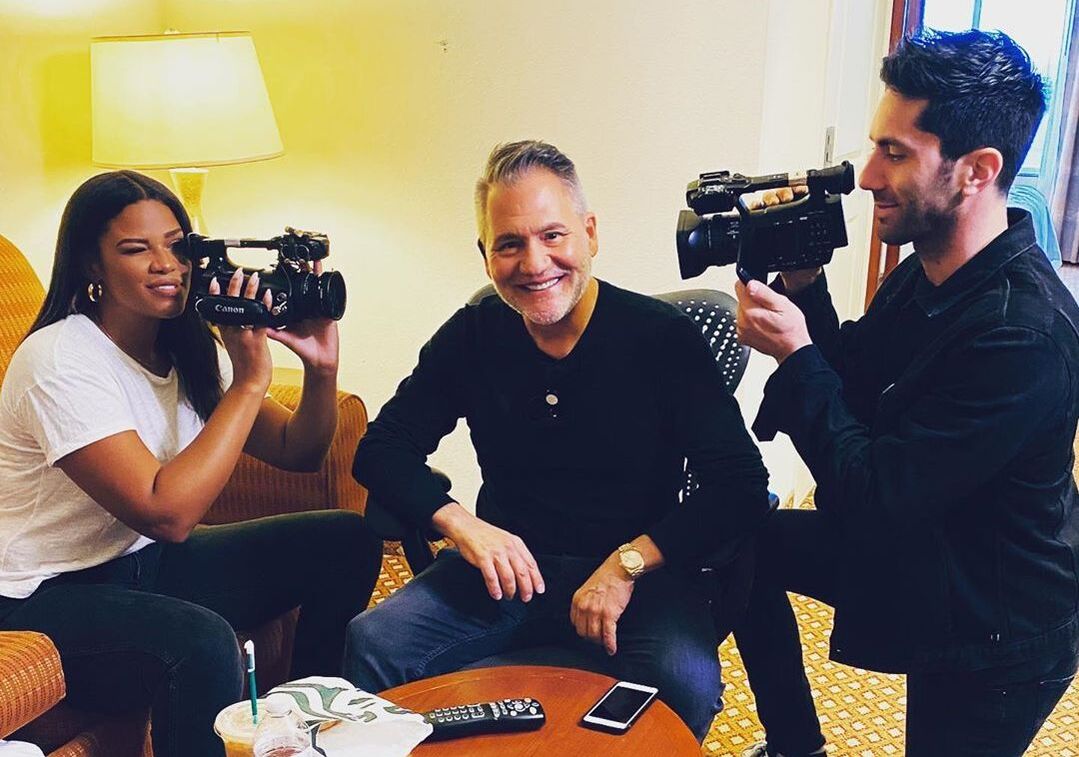 Hosts of MTV's Catfish Nev Schulman and Kamie Crawford film DP, John DeTarsio. Hosts of MTV's Catfish Nev Schulman and Kamie Crawford film DP, John DeTarsio. Dare to Dream Productions Podcast, director and host Bridget Johnson interviews the director of photography for MTV’s tv show, Catfish, John DeTasio. He speaks on how cameramen adapt to filming up close reality content in a pandemic. He served as the executive producer of creative development at NBC and was the DP for many of CBS’ 60 Minute segments. He’s a freelance cameraman and has been the DP on all of the seasons of Catfish. This University of Arizona Graduate also has experience with producing and directing. John’s interview has been edited and condensed for clarity. Watch the video version here. How did you land the job being the DP of the show. Did you work with Nev before? I had not worked with Nev before, but I was a fan of his documentary. I had seen that two years between the time that the documentary came out and the deal was done with MTV to make the pilot, when I got involved. Many things had to fall into place as you’ll learn the more and more you get into this business. Every relationship you have in the world you leave in a good place because you never know when they’re going to come back. I was aligned with the CEO of the production company that makes catfish for MTV. So MTV agrees on having a show, they hire a production company, and that production company boss I knew from back in the days when I did a lot of 60 Minutes and 48 Hours, he was a news producer. So he knew me as a magazine documentary guy. The person I told you about Tom Forman the CEO of this company had found David Metlzer, who had a very successful show called “Queer Eye for the Straight Guy”; the original one. He was known as a documentary real life, not “fake reality” but “real, reality” producer. I was connected with David through Tom, already we had been working on a few shows together. When Catfish came along, they just saw me as a really good fit, because of my background in news and documentary news magazine, along with my body of work. They felt that I was the right person because I really wanted to make an original real, reality show where you are discovering things as they happen and you walk into doors one time. You don't set up, you just go on intuition and the energy of where things are. They felt that that was my strong suit and that’s how it happened. We all kind of came together, we always say it was lightning in a bottle, we all kind of found each other accidentally. I’ve been in this business a long time, thirty-something years since I've graduated from college. I’ve been on many shows and I cannot tell you how rare it is to find a show that even gets out of the pilot and becomes a TV show. You’ve already done an incredible amount to just get a season of TV and then to make it two seasons is unbelievable. Never in my career have I been so lucky to be on a show where the core group of people are still the same, and we’re now 9 years later and 160 shows in. It’s been amazing, we take every day as a blessing, we just appreciate the fact that we’re still doing it, and we feel like we’re making a good show and in our way trying to send a good message. Even though the people on our show don’t come from the best positions, they’ve had a lot of struggles but everyone is a human being and that’s what we’re really proud of telling. You helped so many people find their love life with their lover that they’ve been searching for for years and not even talking to them on the phone. We still try to keep in touch with as many of these people as we can. Nev’s always receiving text messages from people from the past. Despite the limitations of not being able to travel to meet the catfish, and doing it on Zoom instead it was still highly entertaining. So what challenges did you face as a DP filming this show during the pandemic? If you were to direct a show and you can't speak or a camera person with one arm tied behind their back, it was very challenging. Like everybody else when the pandemic first came out everyone was scared, we all retreated to our homes and waited to see what was going to happen. It took a month, maybe longer when our executive producer and Nev and Kamie were all thinking “you know what, as many catfish there are in the world I would imagine there’s even more of that right now”. People are just stuck at home, people need to talk to people - we should see if there are still stories out there, so they kept the casting going and sure enough they’ve been able to find some really interesting stories. 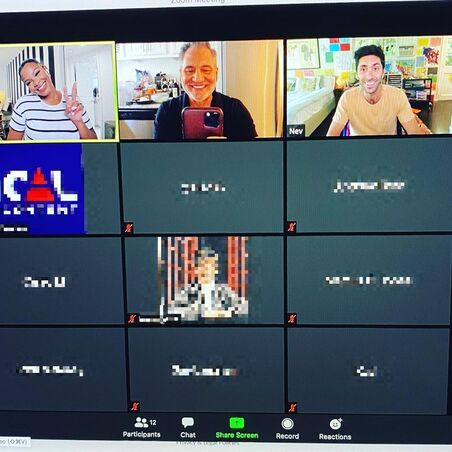 Zoom set-up for filming Catfish. Zoom set-up for filming Catfish. Zoom has been our savior, our ability to talk to each other and see what’s going on in real time. We send computers out to Nev and Kamie with software that we can control. We send a couple of small cameras to have as wide shots and through zoom I can explain exactly how I’d like to have the shot, and we can Facetime, and they can show me the shot, we did a lot of communicating like that. Our sound man has been able to find zoom recorders that take time codes, so we can sync the pictures to the sound so it’s editable. We found a way to do it. The main thing is having the software where my computer can talk to everyone else’s computer and our techs are able to make sure things are being recorded and that we get all the footage. The task gets more monumental because on a show like this, even though we wrap it up into a nice 45 minutes, one of our meetings might take four to five hours. So that’s a lot of footage that we need to group so that our post facility can gather that up and match where all the cameras are because we don’t have the ability to sync everything together like we do when we’re in the field. Bridget: It seems like a lot more work. Lots of challenges, you don't want to hear all of them. Our lives depend on good internet. It’s been quite a challenge but I’m so proud of Nev and Kamie, they’re amazing, and our post team who, even though we’re just sitting at the computer now, have found a way to still keep it so lively and interesting and I’m really impressed. It’s a small show and it looks like a small show but it’s a big family. Every stage of the way it’s impressive. 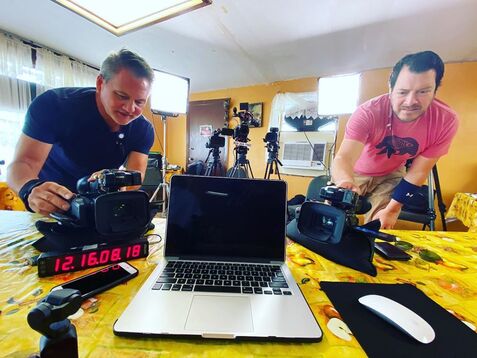 Catfish camera set-up before the pandemic. Catfish camera set-up before the pandemic. What did the camera set up look like before the pandemic? How many cameras and what kind? Before the pandemic I would travel with no less than 11 cameras. The cameras would range, A lot of point and shoot cameras that happen to shoot video. We started doing that very early on because Max was on the show with us - and Max and I were shooting basically everything. It’s hard to get all the angles one time through. Even though Max was just holding a little hand held camera - the intimacy he got from a person that was talking to him was an angle that was physically impossible for me to get unless I’m in the shot the entire time. We loved it and post loved it, and we really started to use those cameras a lot. We don’t use them as much anymore but I still take a couple of those, Kamie uses it quite a bit. I carry these little cameras (Cannon XF-205) , you can't even buy them anymore, because I think they came out in 2012. I love the camera because you have all the controls of a real camera, zoom, focus, iris control you can make it professional or you can do automatic audio settings. Kamie can take it and put it on her lap or walk around during one of our reveals like this on automatic controls, and she’s going to get something. She’s going to get an angle with the catfish looking right at the camera which we love - the raw intimacy is important to us. I also use C300 Mark II for when we’re sitting down. This is between the two (Canon XF705) which is a documentary camera, and we have five GoPro's. The reason why I have so many cameras is our show depends so much on someone's reaction. You don’t want to miss those moments. With less cameras you run the risk of missing things. We don’t do anything twice. Early on in the show I would sit in the middle and Max would shoot with his camera and it would be hand held and energetic and good, but we were missing a lot of so I added more cameras. A typical scenario is we are going to meet the hopeful, I might go to a set early and figure out where they’re going to sit, do some basic lighting, and drop off the cameras, but I don’t meet the hopeful (someone who writes into the show). We rig the car with GoPro's and then we’ll go back to the hotel. So when Ned and Kamie have their call time, they are already on camera - we follow them from the lobby to the car to the location. Me, my assistant camera, camera tech all hold the little cameras and walk into the house at the same time. We do this because we want Nev and Kamie to be part of the story. We don’t care how dirty it is, our biggest goal is to get the real reaction the first time, and we get all the honesty we can. No one actually meets the hopeful until the first day. We’ll roll the go pros and record their real goodbyes. That’s how you get real personalities and reactions. It’s complicated but it’s simple.
A little bit of control - still not as much as I’d like to have. That’s what just happened to your camera, I saw you move and the iris went up and the light changed. That’s what happens with these cameras; they're not professional cameras but at least we have a little control with them. I wish there was a way that if I were in control of your camera, I’d have some ability to pan, and tilt and zoom. There are cameras like that but you would have to be out in the garage not across the country. That would give me a lot more freedom but that’s why I have the other cameras locked down in wider shots for when those real moments happen. When you were on set during the pandemic did you have to get tested before and wear a mask? There was no set, our set was in the office, we sent them the equipment and taught them how to set everything up over zoom. But if I'm seeing Nev or Kamie we’re wearing masks, getting tested, taking all the precautions. What do you think the future of filmmaking looks like post pandemic? I’m still hopeful that we’re going to find our way back to each other. It’s not going to be overnight, it’s going to be a slow roll out, but I’m a history buff, and looking back through history we’ve had several pandemics, they’ve always subsided, and we’ve always come back together. We’re tribes people, we need each other. It won’t be overnight, I think it’s going to take a while, at first it’s going to be difficult shooting films, you're not going to find lots of extras in the background. People are going to have to write shows that don’t have big crowds. There's going to be scripted television where you go in, set up the shot get everything ready and then leave when the actors come in except for maybe two or three people, and they’re spread out pretty well. You won’t have all the crew and video village in the studio anymore. Slowly but surely as we get a handle on this and we get the vaccine, and the noise settles down and it becomes less deadly we’ll make our way back to each other. I believe that, I feel that. My son works on a reality tv show where they shot it in a bubble, it was very successful. The show basically bought up an entire resort, so the crew slowly arrived, got tested, quarantined, and nobody saw each other and finally, after all of that and time in quarantine they slowly got together and started building the show. There was no coronavirus, they shot the show for two months, at this one spread out location and it was very successful, they're planning on doing the next season very shortly. We’re all finding our way, I think the small shows are going to do okay, shows like Catfish because we don’t have big crews. MTV is being very cautious. When MTV is ready we’ll get Nev and Kamie back together in the same room. Maybe sitting a little further apart but that would be lovely seeing them together. Meet our people out in a park and stay outside and stay distant, we’ll find our way back. There are 20 of us on the Zoom associated with the show and at the end of our meetings Nev has us turn our cameras on, so we can all say hi. Do you have any advice for beginner DPs? There’s so many different avenues for DP’s, pick your lane. Really try as early as you can, what you really like, identify it. Are you super interested in multi camera sitcoms? Are you interested in films? Are you interested in taking over the corporate world? The YouTube world? And really focus in on that world and who the leaders of that particular lane that you pick are. Pick your path the way they picked their path. Obviously the easiest way is to go to a very prestigious school that hands out really amazing internships, and apply and win a great internship and go work for Martin Scorsese, that would be wonderful, but those things, that’s very rare. So you just have to pick your lane, really study the people you admire, how they did it, and learn from that. You don't have to follow their path - but learn from how they did it. You have to get to where the business is. I went to the University of Arizona, I had to find my way out to the west. still to this day there’s not a lot of work out there. Now I can go live there and commute after 35 years of connections, but I had to find my way and immerse myself in the world. Fall in love with story telling more than falling in love with your ability to shoot a gimbal shot or get nice lighting on a car. You have to know light, light is so important to know. Not just typical key light, backlight, accent light, actually study the light. When you’re sitting outside by a lake and you notice you feel really good, think about the light. When you’re looking at art and it makes you feel a certain way, think about the light. You can light with one single lamp, it might tell a story. You don’t need big toys, but obviously, understand the basics. Wide shot, medium shot, reaction shot, and understand the basic building tools of building a story. When I look at audition tapes and it’s just one beautiful shot after another, it really tells me nothing, I want to feel something when I watch. I want to feel stories and I want to feel that you understand story, you understand emotion, that there’s a person there. That directed or feels these shots. It’s not all about “look at this great drone shot I got”. 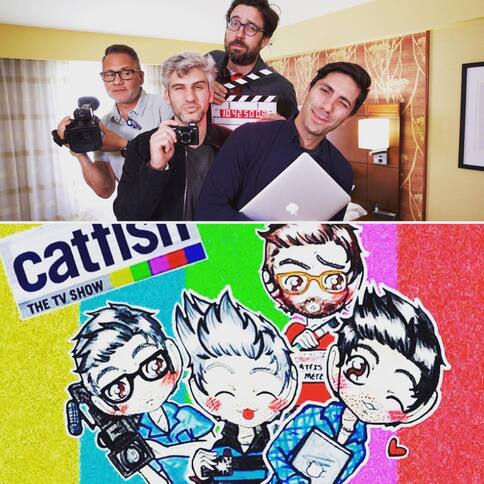 The magic behind MTV's Catfish. The magic behind MTV's Catfish. What’s next for you? Retirement hopefully. I figure I’ve got about ten years left in this business because I still enjoy it. I’m a freelancer so my life is still concurrent, I work for this company critical content, because of Catfish they have basically booked me in chunks at a time. They’ve got a lot of other projects going on, so I’m always working on other things. In fact this week and last week Catfish is dark, and I am working on a show with Kevin Hart who is doing a game show for E, called Celebrity Game Face, it’s also kind of a virtual show. Since COVID-19 our Catfish team has done a special for CBS, sort of shot in the virtual style Catfish episodes. People giving each other haircuts while we were at home in lock down. I’m out there doing other stuff but catfish is my main stay. I hope that Catfish continues on for a while. As I tell my friends all the time, us core people who have stayed with the show, we’re going to ride the wave all the way to the shore until MTV says okay it’s time to close the doors. We’re enjoying it. As far as other work goes I don’t really worry about that so much, but I’ve earned that. I’ve been around a long time so when I become available I know a lot of people and I can jump onto something else. I don’t have the big aspirations of “I need to shoot a feature film” because I’ve achieved everything I wanted to do. I’m not in it for any kind of attention, I get to direct shots, I get to pick cameras, I get to pick how the whole construction and the mood of the project is. When I was doing that on two minute news stories I was already happy, I had already achieved what I wanted to do. As different shows come along that’s great, but I’m just grateful that I get to do that. I get to manage a team, whether it’s two people or fifty people. I’m managing a team and trying to construct something for the visionary for the director or for the executive producer, trying to imagine what they're imagining and trying to bring that to life. It doesn’t matter if I’m doing it for something big or something small, I just enjoy doing it. I don’t think about what’s next, I just want to keep doing what’s now. Follow John DeTarsio on social!
“Everything Has Changed:” The Shifting Role of Actors During a Global Pandemic with Curtia Torbert8/27/2020 To kick off the launch of our new weekly podcast, Dare to Dream Productions Podcast, hosted by director Bridget Johnson. Local actress and singer Curtia Torbert shares her experience of working as an actress during the global pandemic. By Luke Bechtel 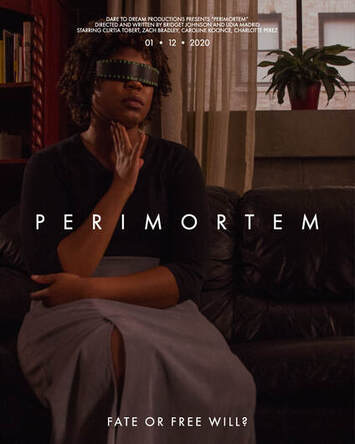 Curtia Torbert stars in Bridget Johnson's sci-fi film, Perimortem coming out in 2020. Curtia Torbert stars in Bridget Johnson's sci-fi film, Perimortem coming out in 2020. Curtia's love for performing spans more than a decade and includes theatre, television, film, and commercial work. In addition to acting, Curtia has directed and produced work for the stage. In 2014, she graduated with a BA in Acting and later received her MBA in 2019. Curtia welcomes the opportunity to collaborate with filmmakers. Curtia’s interview has been edited and condensed for clarity. What projects have you been working on? Right now, everything is very slow. Before the shutdown, I was working on a feature, but now we’re in limbo. A lot of productions have been dealt those cards where everyone is just waiting. Luckily, the commercial industry is still up and running, but with a lot of changes. Especially around the beginning of the shutdown, the way commercials were being produced was way different than how it usually is. Usually, you get cast, you get your script, and you go on set for a couple of days. However, since a lot of states shut down, you ended up seeing a lot of voiceovers and stock footage - even now, if you turn on the TV, a lot of the commercials are using a lot of stock footage, so the voiceover industry was booming. I’m not a voiceover artist. But the voiceover artists were really, really working. Of course, you can’t really sustain that for long. A lot of viewers really appreciate the actor - the person they can see and hear. After that stage, commercials moved towards filming from home. Now, finally, now that the industry and country are opening back up, I’ve been able to participate on set in commercials. Of course, with these commercials, they still include the coronavirus reality. We would film a “normal” commercial, then a second take with coronavirus social distancing standards, so we always have those two options for when it actually airs on TV. Everything has changed. So what’s it like to be on set? Do you have to wear a mask and is there social distancing? For every commercial, there’s of course an NDA (non-disclosure agreement) so you don’t share information regarding the production until, obviously, it’s released. But now, there’s an entire other contract that involves just health. So your temperature had to have been taken in the past 14 days, it asked if you’ve been around anyone sick in the past 14 days, you know all the coronavirus guidelines that we have to abide by. So, on set, every so often, we have to get our temperature taken, and we must wear masks right until we start filming - unless there’s a take that requires a mask. And then, while we’re all holding, we have to social distance.
You’re so excited to get this opportunity to do what you love, but there’s still this anxiety - there are still people on set. I hope I don’t get sick, I can definitely be accountable for myself with staying healthy, but how accountable are these people that I’m working with? So there’s definitely still a level of anxiety and consciousness of the reality of the times, but leaning more into taking those precautions and making sure I’m doing everything I can to stay safe. Is there anything you think actors should do to make their actors feel safer on set? In my recent personal experience, I don’t think there’s anything anyone on set could have done differently to make me feel more comfortable. I definitely felt comfortable while I was there. Our contract that came out ahead of time was very clear that everyone on set was expected to uphold these requirements. Everyone would be taking these self-checks and temperature checks, and everyone always wore a mask on set. They were very transparent and aware of our needs and wanted to be very respectful of our comfort. I don’t know what else a director would do or should do outside of the amazing experience that I had. Everyone on the crew wore masks, we were constantly asked “are you comfortable?” We had different scenes and location shots within the area, and we were always asked, “do you mind taking off your mask?” And I appreciated that. Here’s something that a lot of productions are doing, especially commercials; they’re asking people auditioning for roles in pairs, families, or couples to audition together. So, if there was a couple that was kissing, they’d rather cast a real-life couple who have been quarantined together and do live together, so there wouldn’t be any discomfort of being close to someone they don’t know and aren’t familiar with. What’s it like right now applying for acting jobs? Has the demand decreased? Oh, yeah. Yeah. Definitely. Like I said, I’m not a voiceover artist - the demand for them has shot way up. They are working. They’re turning work away. My work has decreased, obviously. Because so many projects are casting families or couples, I live alone in Chicago, so that made it difficult to get cast in projects. Luckily, I did this commercial with my nephew - he’s four months old now - and the commercial was filming in his home state, not here in Illinois, but I was able to work as a local hire there. I really lucked out with that one. If I wasn’t able to work with my nephew, I most likely wouldn’t have been cast. I always recommend actors and artists to continue training. There’s always gonna be someone who’s learning new skills and techniques and they’re gonna surpass you. As far as training, a lot of training has gone virtual as well, and a lot of it focuses on voiceover training because that’s what’s casting right now. And it’s likely that’s what’s going to be most heavily cast for the next few months to a year. Is there any training in Chicago you’d recommend for actors in Chicago? The Forge, formerly known as Blue Door Collective, has voiceover training, screenwriting training, production training, acting 101, and master classes. They are really the full circuit for filmmaking. I’ve done a few workshops with them, and on their Facebook page they offer some free courses as well. They’re really great. We’re in kind of a weird phase right now. Shelter-in-place is over with, but people are still staying inside. How was your shelter-in-place? What did you do during that time? Oh, gosh. That was hard emotionally, especially for someone like me who already suffers from bouts of depression and anxiety. Just the smallest triggers will send me into chaos. Just the first few weeks of the mandatory stay-at-home order were really hard on my psyche. Especially since I live alone; my whole family is in the South and my husband is away on military duty. So, reading, praying - over time, I found that short walks are really helpful. Talks with family and friends, therapy - I found that all of those together have been really helpful. Still, you have your hard days and you have your good days, and it’s all about managing it. Exercise is really good; since the stay-at-home order, I’ve gotten involved with online exercising. I just do it in my room. I’m able to sleep a little bit better at night after that. I’ve just been taking it one day at a time knowing that it’s not just me. Everybody is having to deal with this. Somewhere or another, people are able to work and pay their bills as they’re dealing with COVID or are sick and afraid to go to the hospital because they’re scared of contracting COVID. So, just, you know, breathing, meditating, taking it easy, and reminding myself that it could be worse. Sometimes those inner thoughts don't always give me a lot of energy to get out of bed, but it does help to remember those things. It’s definitely a hard time to live alone right now. It seems like we’re dealing with not just the pandemic, but also a historical revolution, and all this stuff with the president, and it’s just been a hard time. But I think there’s a lot of positive change happening, especially with police brutality and new laws being in effect for that. It’s definitely a momentous year. When you think about what could happen, everything is happening. If there’s an apocalypse in 2020, I wouldn’t be shocked. Me neither. There’s the largest civil rights movement ever, gay pride is at an all-time level of awareness, a historic election, and the coronavirus pandemic - what else could happen? I hope something positive. So, what do you think the future of film sets looks like? Do you think these are temporary regulations or permanent? Maybe a mix of both. I think people are going to be a lot more conscious of health and safety not just in the industry, but in everyday life. There was a running joke on social media that said, “you really waited until a pandemic to learn how to wash your hands?” But now, even people like my little cousins will wash their hands and sing “Happy Birthday” while washing up now. They’re kids; they’re six, four, and two. That’s just going to be their new normal; in twenty years, they’re just going to be doing it. I don’t know about masks being the norm forever. I know in other countries, the general public has been wearing masks for years. But who knows? Maybe it’ll be a new normal to always be taking your temperature. Maybe they’ll be including clauses in contracts about health and safety rather than making it a whole separate contract. I do think that the industry is going to morph into something that’s a combination of what we had before and what we have now; I just can’t imagine continuing like this forever. It’s difficult to imagine. Even when you’re talking about the release of films, a lot of production companies are releasing films straight to digital. There was even a movie theater that said they’re no longer releasing a certain company’s films in theaters, so a lot of films are going straight to DVD or straight to digital way faster. A lot of companies are also realizing that they get more viewers on digital platforms than they would in theaters. I feel like we’re learning a lot of new opportunities that we’re forced into that they wouldn’t have realized otherwise. There’s this camaraderie when you can sit in a huge room full of people and laugh and cry at the same things. 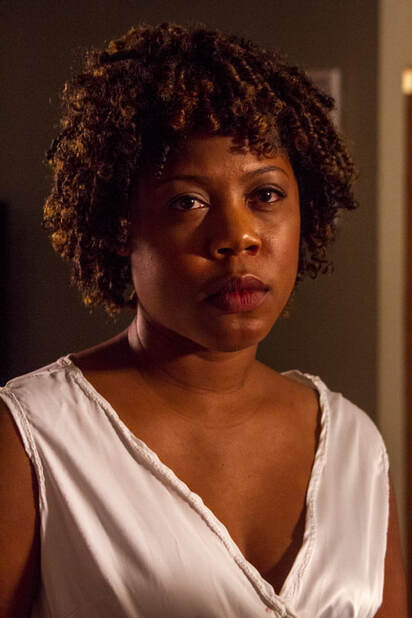 Curtia Torbert as Ophelia Collins in Perimortem. Curtia Torbert as Ophelia Collins in Perimortem. I can definitely see that, especially because people are staying at home and you save a lot of money streaming things compared to going to the movies. But, again, going to the movies and seeing something on a big screen with a crowd of people is amazing. Especially when you can see your work on screen; it’s a real feeling of accomplishment. I just hope movie theaters never go obsolete, because that’d be really sad. Especially for people in the film industry. There’s this camaraderie when you can sit in a huge room full of people and laugh and cry at the same things. People can be rows away but there’s still this connection to this film you’re all watching together, and to think that that could be gone one day is really sad. Drive-in theatres are coming back, which is really interesting. So what's next for you? I don’t really know. I’m really just taking it one day at a time. As you know, I was writing my first film - a short - so I’m currently doing rewrites for that. I first started writing in January of this year and hoped to get it produced by the end of this year, but, for obvious reasons, that isn’t going to happen. I considered adapting it to a short story, or I might put it on hold until next year. There was a TV show, CBS’ All Rise, and it was the first TV show to have a coronavirus-centered plot, and they did it completely from the actors’ homes. They incorporated Zoom and toyed with the idea of holding an entire court hearing via video. Like, “how could we do this? Is it legal? Will it work?” It was fascinating seeing the possibilities. It sparked something in me; would I be able to produce a romance film completely through a video call? How would that look? It’s been hard to concentrate. All these self-help things you can do like exercise, read, write, and take walks, sometimes make it hard to concentrate on work, for me, at least. I had to deactivate my social media and didn’t turn on the TV for, like, five days because all that was coming through was news on coronavirus and police brutality. I just had to unplug and not think. Follow Curtia Torbert for updates! Interested in working with her? Find her on: Actors Access Casting Networks Backstage Stay tuned for next week's podcast with experimental filmmaker, Elizabeth J. Cassidy!
Back in December I wrote my first feature film called Evade. It’s a thriller and horror film with a feminist/queer plot line that’s full of twists and turns. Think Get Out but gay. I got it officially copyrighted by the U.S. copyright office. My next process is to be able to pitch it to some production companies when I go to LA for LA quarter for my school. I want to get this script optioned because right now I am not capable of making it happen with a low student budget. It requires a large cast, party scenes, and multiple locations. I wrote Evade in 2 weeks (seriously). I wanted to write this blog to show that you can too write a feature in 2 weeks. Now before you begin, this requires determination, no distractions, and at least three hours of writing per day. I know what you’re thinking I don’t have the time…I have a girlfriend…I have kids…I work a 9-5. No excuses. It’s all about balancing everything. To help, you should break the three hours into an hour and a half of writing in the morning and an hour and a half of writing in the afternoon or at night. Here are the steps I advise you to follow. 1. brainstormBefore you can even type one word, you need to come up with an idea. Grab your laptop or pen and paper (what I prefer) and ask yourself these questions.
2. Character Exploration
3. Outline your entire film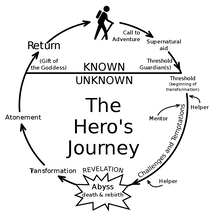
4. writeNow it’s time to open up Final Draft or Celtx or whatever screenwriting software you prefer and WRITE. I’ve created some rules to follow when writing.
5. Pat yourself on the back!Once you’ve finished your first draft treat yourself to a massage, expensive coffee, or sushi at that boujee restaurant. 6. The Re-Writing StageWriting is really about re-writing and always improving your characters, dialogue, plot points, and whatever else you feel like needs improving.
7. title it.I like to do this last so I can see what themes were created and try to create a title based on that unless before you write you have a title you really love. You do you. To me, memorable titles are very hard to create. 8. have fun!Experiment. Have workshops with friends that are screenwriters. Explore a theme that you’ve always been interested in. If you’re not having fun while you’re writing, then your audience won’t either so choose something else to write about. I hope you found this article helpful, if you did, please share! Comment below your own writing tips and tricks. Dreams are never too late to make happen! Love, Bridget. link to creating characters exerciseThe Oscars started in 1929. Only one female director has ever won the Oscar for Best Picture: Katheryn Bigelow for The Hurt Locker. The Celluloid Ceiling is an annual report from the Center for the Study of Women in Television and Film at San Diego State University that records statistics about women in film. Martha Lauzen, the executive director for the center and author of the article, “The Celluloid Ceiling: Behind-the-Scenes Employment of Women on the Top 100, 250, and 500 Films of 2018.” reveals, “Women accounted for 8% of directors working on the top 250 films in 2018.” Why are there few female filmmakers who are nominated and/or win the Oscars? I interviewed three strong and talented female directors to get their perspective on this issue and discuss what it’s like for them to deal with gender discrimination in the film industry.  Charlotte Kennett is a comedy writer/director known for her popular Chicago LGBT+ comedy web series, Chapstick and Youtube Channel, Sleep Late. She moved to LA last year and worked for Starz as a Production Assistant on the TV series, Counterpart. Charlotte co-wrote a feature film alongside the well known LGBTQ female filmmaker Marina Rice Bader of SoulKiss Films this past year and a few months after wrapping Counterpart. The film, "Alien Jane at the Shangri La", is set to go into production in 2020. Pushing onto another feature, Charlotte is currently co-writing a lesbian Rom Com alongside YouTuber, Jenna Larson, for Tello Films. The film is set to go into production in the Fall of 2019. Charlotte says about that experience, “It’s so exciting to be working with LGTBQ writers, producers and directors I’ve admired for years.” Charlotte currently works part time as a writer and producer for a commercial production company in Los Angeles, and beyond that is working hard as a freelance writer, director and producer the rest of the week. Charlotte says about her current favorite projects: “The ones where I get to get behind the pen or behind the camera, I’m invigorated." Charlotte is currently in pre-production on her next LGBTQ comedy web series called “Hopelessly Homo” which you can look forward to within the next few months. Follow Charlotte on Instagram and look out for "Hopelessly Homo" on Youtube 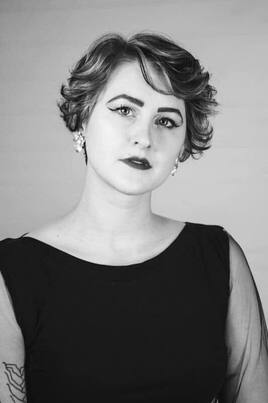 Layne Marie Williams is an award-winning female filmmaker and founder of Women of the Now, a media production company in Chicago. They are focused on telling complex female-driven stories and providing networking opportunities and events for women identified folks in the film industry. She also created The Women’s Film Festival in Philadelphia that offers opportunities and support to female filmmakers. Check out Women of the Now's Website and follow Layne on Instagram 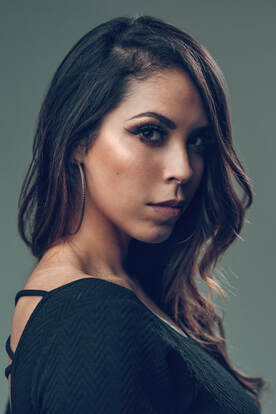 Gigi Saul Guerrero is a Latino horror female filmmaker best known for her style of TEXMEX horror with a touch of grind house. She directed the mini-series "La Quinceañera" for Warner Brothers / Stage 13, and fan favourite "El Gigante". Her company Luchagore Productions has made over 18 shorts films including viral sensations like Evil Dead in 60 seconds, A Luchagore Christmas and many more. In addition, she just recently wrapped her first feature for Blumhouse on Hulu's Into the Dark Series. Follow Gigi on Instagram and check out Luchagore Productions' Website 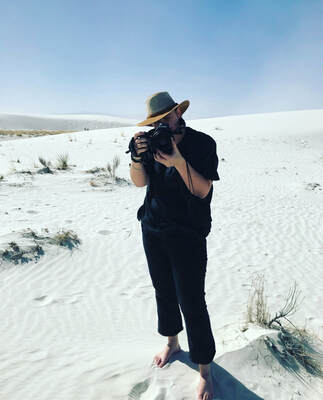 Bridget Johnson: Why do you think there are very few female filmmakers in the past 10 years who win Oscars? Charlotte Kennett: I think this would be because the largest budget films or ones with the largest producers attached choose notorious male directors over taking a chance on a newer, maybe less experienced female director. I think it’s hard for certain people in the industry to see beyond numbers. It’s a business at the end of the day. I think men trust men more than they trust women. There’s no exception when it comes to a big film. Like I said - people seem to have more faith in a man at the helm of a big film than they do a woman. Layne Marie Williams: I think it goes back to “Oscar So White” it’s all in that same playing field. The patriarchy and who’s taking up space at the table for the longest. It needs to change. Gigi Saul Guerrero: There’s still going to be politics no matter what kind of award, field, craft, industry we’re talking about. People are favored. It’s hard to say why there haven’t been enough women, but not enough women have been hired to direct and that’s the problem. Not enough women have been given those Oscar-worthy films to direct that we can all remember by. 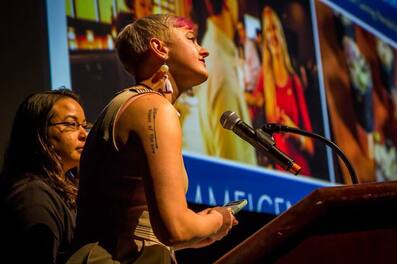 Bridget Johnson: What is the result of having few female filmmakers? Charlotte Kennett: The result is less interesting, honest stories being told from unique POVS. We are losing big stories, or they are being told by the wrong people. We have to remember our vantage point. We should want people to go into the movies to escape, but also feel like they see themselves - or could see themselves. Without more representation behind and in front of the camera - we lose that. Layne Marie Williams: There’s power in numbers so I think that there’s few of us at the helm of who’s work is really being seen in like a demographic level. I think it’s a shame because it’s keeping our audience from seeing all the different voices of this world that the world has. Gigi Saul Guerrero: The result is not just the fact that not enough of us are getting hired or recognized or that this problem is slowly being brought up and recognized. I think women have looked at each other as a competition when that’s not how it should be. Film is family. Film is support. It’s not a competition and I think that is the result of why there is so few of us is because we compete too much, and we complain too much. Why not just get up, work hard, and do your thing. That’s the only way to stand out in this business. 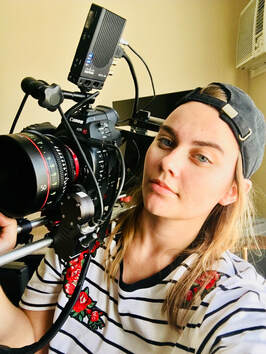 Bridget Johnson: What changes would you like to see within Hollywood to help elevate women in the industry? Charlotte Kennett: More resources I would say. The more opportunities we can give women like labs and fellowships etc... we will be on the right path. Mentorship programs - women supporting other women. And men in the industry- it would be nice to see them support us more. Layne Marie Williams: I would like to see more grants, more scholarships, more funding opportunities given to female filmmakers especially in the indie world, so it doesn’t have to be so impossible to reach that level. I’d like to see women directors directing big budget films. Gigi Saul Guerrero: Hollywood has to also take the responsibility of recognizing more women, but also not just recognizing women for the sake of it, recognize them for their work. I just don’t want Hollywood to hire for the sake of having a woman or a minority or someone different to direct this film, to make this film. They have to really earn it. 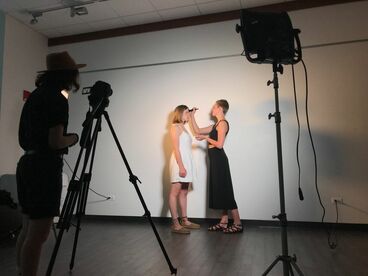 Bridget Johnson: What advice can you give a young female filmmaker? Charlotte Kennett: Keep making films and art in any way you can - keep getting better at your craft so that when they are asking more female filmmakers to direct projects that you are at a place to throw your hat in the ring. Do everything to create. And demand to be seen and heard by the higher-ups. They are finally starting to listen. Layne Marie Williams: Make work! Have fun with it. Tell stories that excite you. That makes you want to wake up in the morning and work on your project. Gigi Saul Guerrero: Don’t be afraid of failure. If you’re not afraid of failure, you can definitely take the mistakes that you’ve been doing and learn from them and grow. From there you’re just going to get better and better. This industry is very cruel. It’s hard. It’s competitive, but it’s all about being yourself and it’s all about working hard and not giving up. I am so grateful to have interviewed these talented female filmmakers that strive for positive social change in the world. They inspire me to keep following my dreams no matter what and to not let gender discrimination in the industry stand in the way. Support them by following them on social media and keeping up to date with what films they're working on. Comment below a female filmmaker who inspires you! never forget to dare to dream!Don't forget to share this blog post to support these female filmmakers! |
AuthorBridget Johnson is the president and co-founder of Dare to Dream Productions. She writes and directs thought-provoking films that inspire others to follow their dreams. Archives
March 2021
Categories and authors
All
|
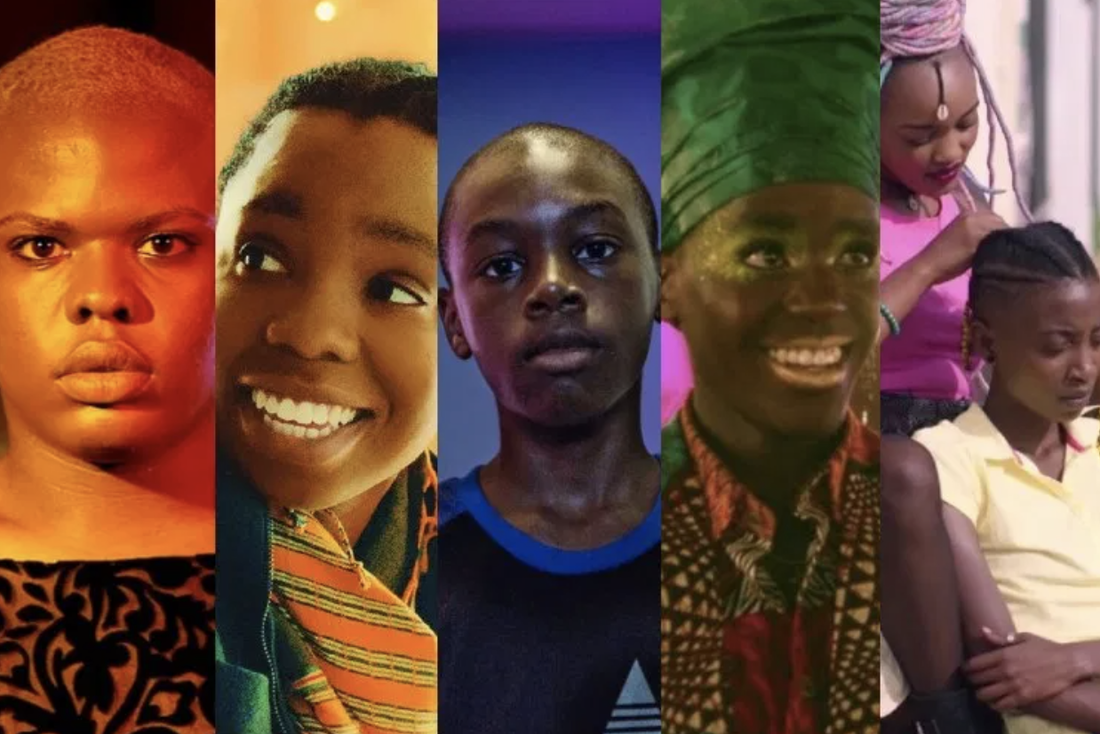
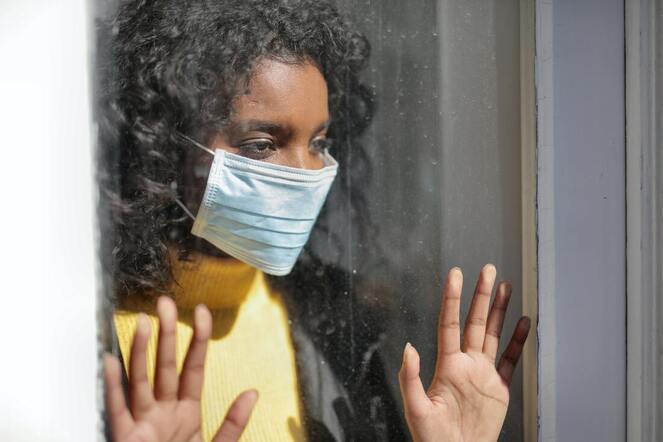
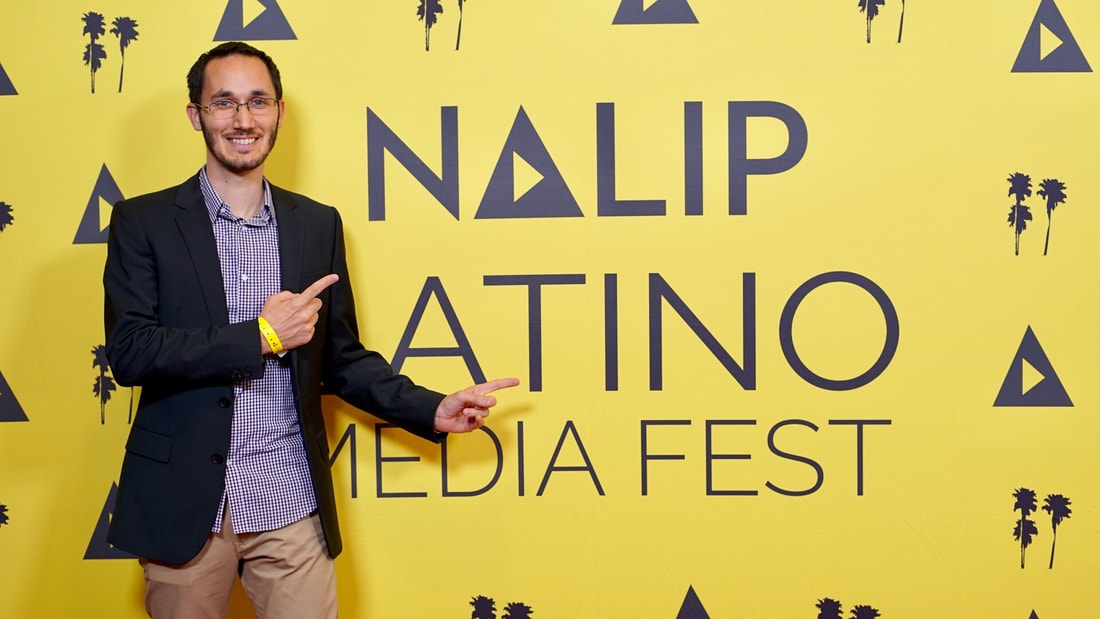
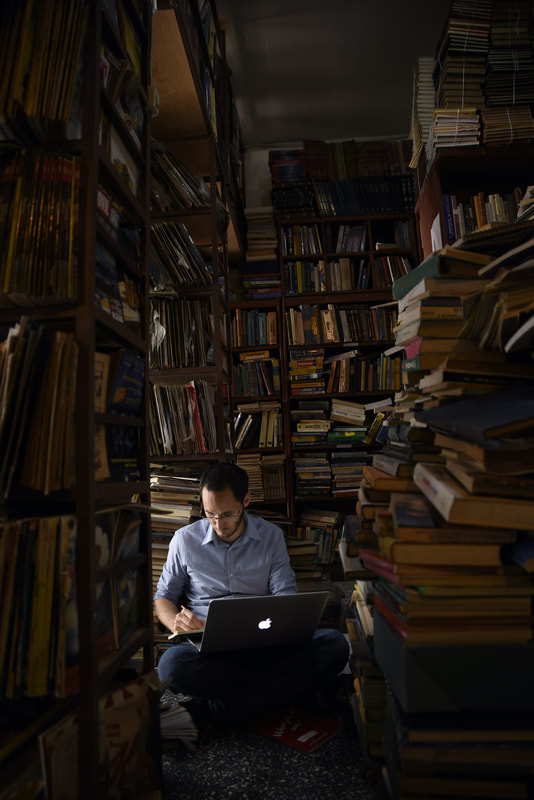
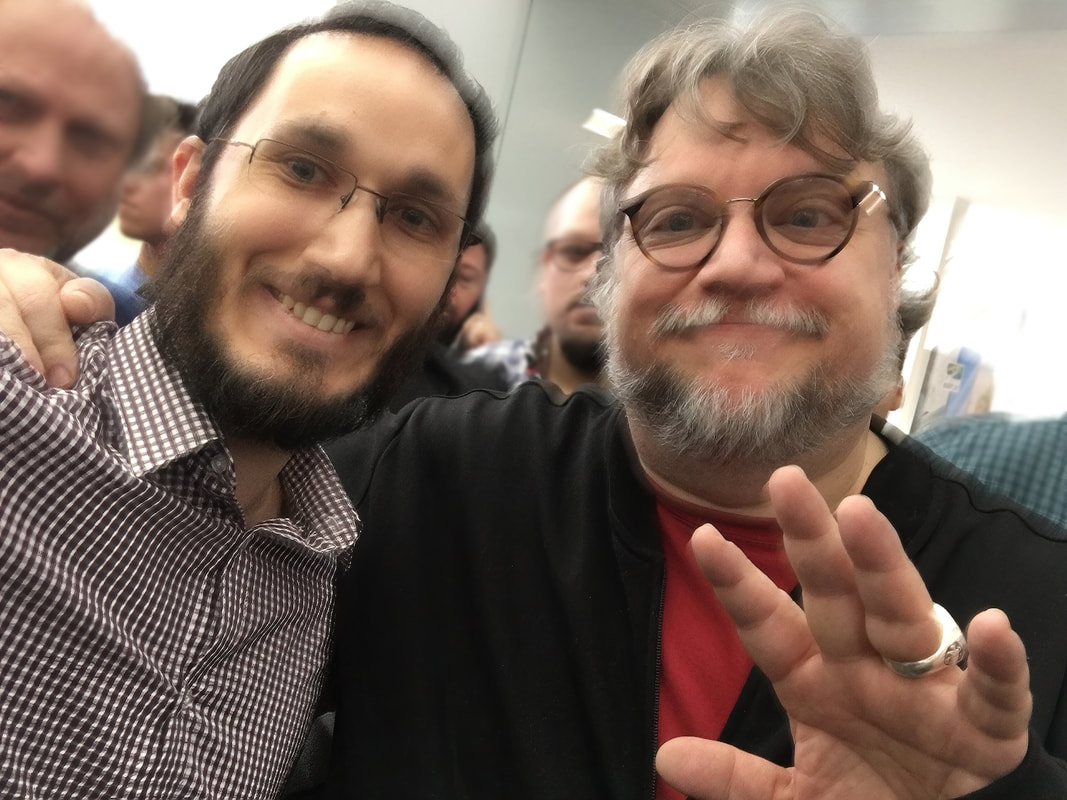
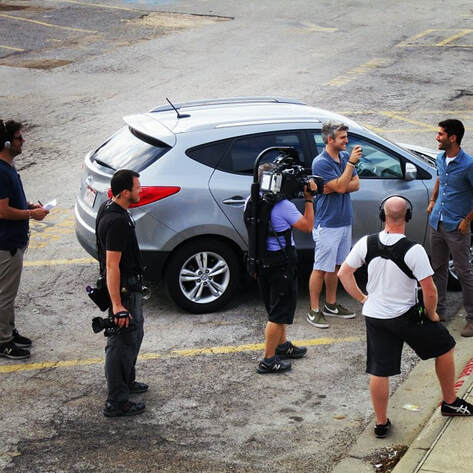
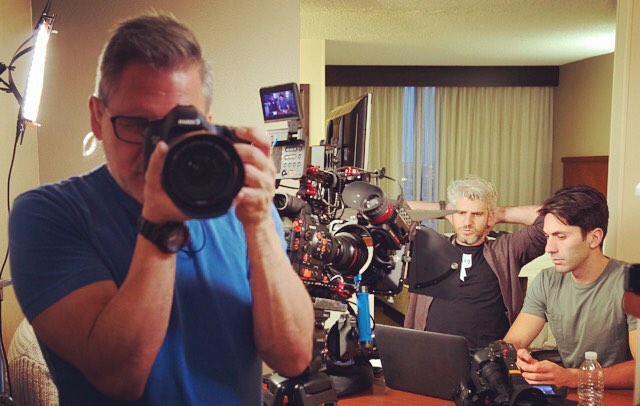
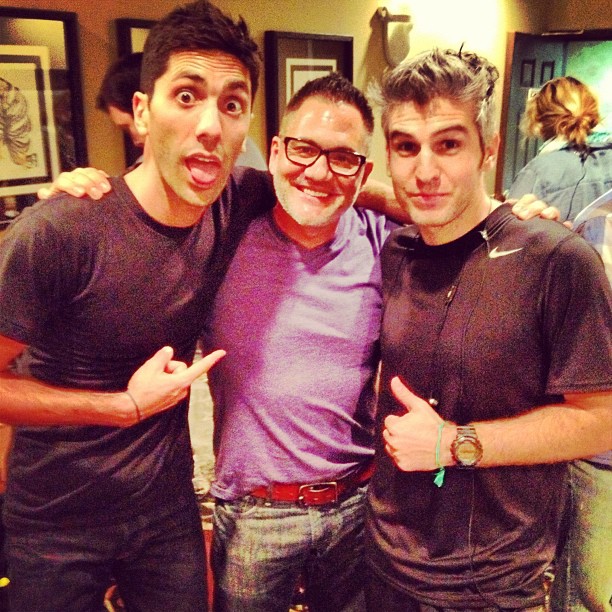
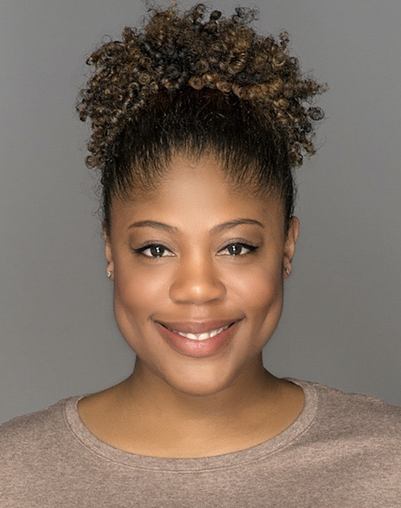
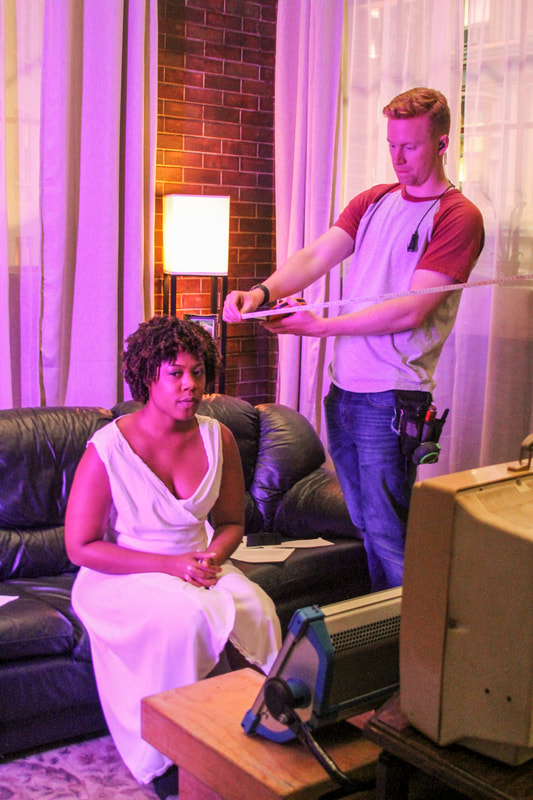
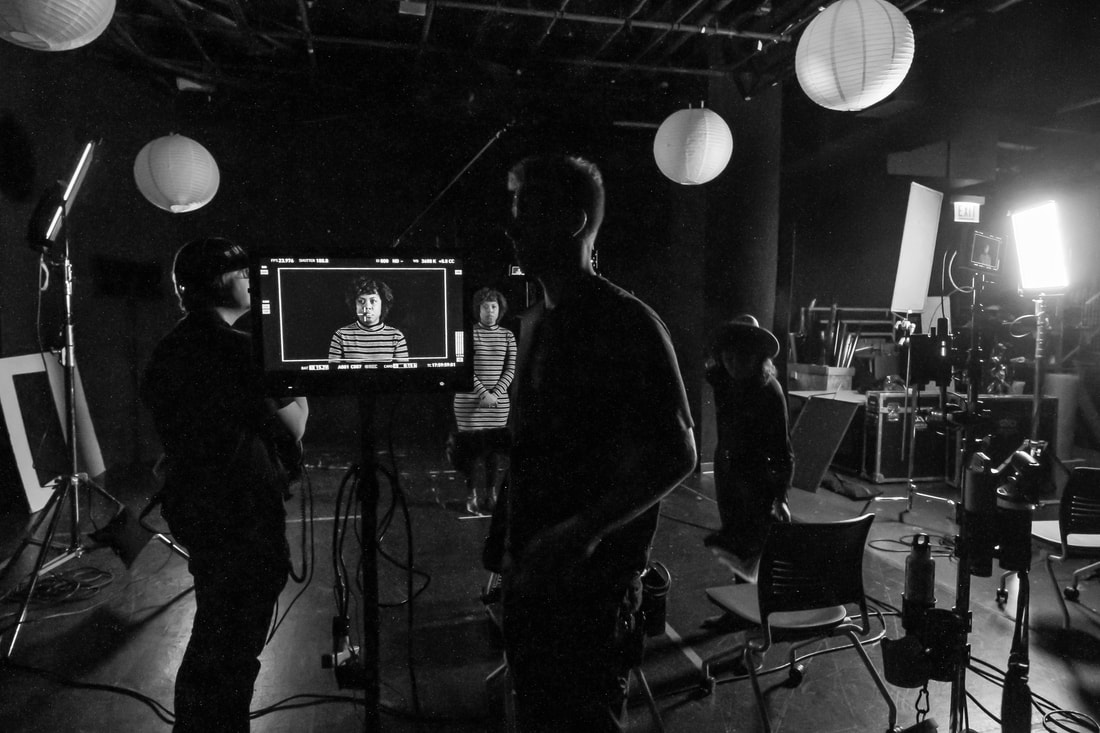
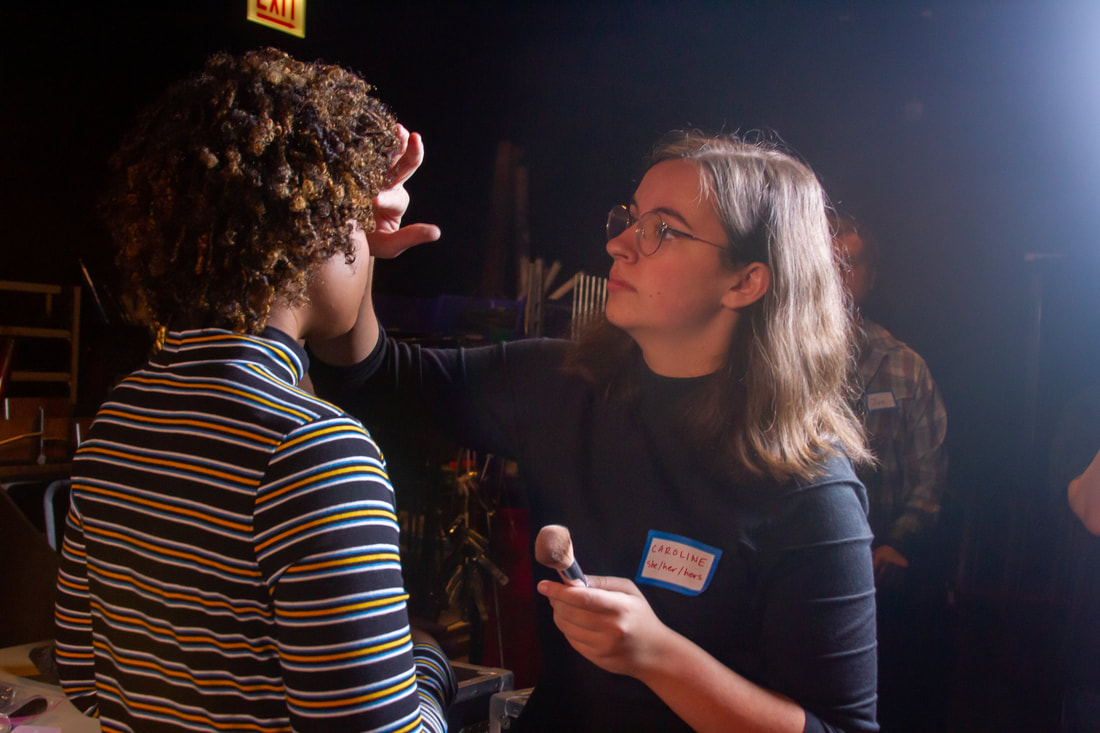
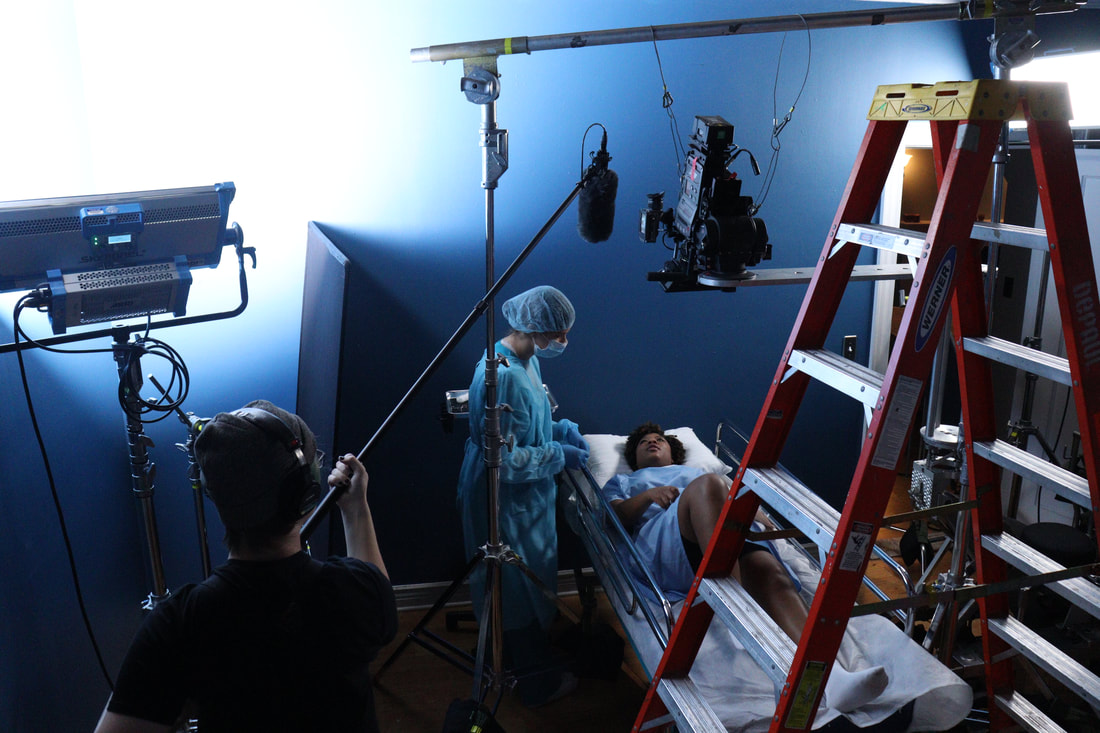
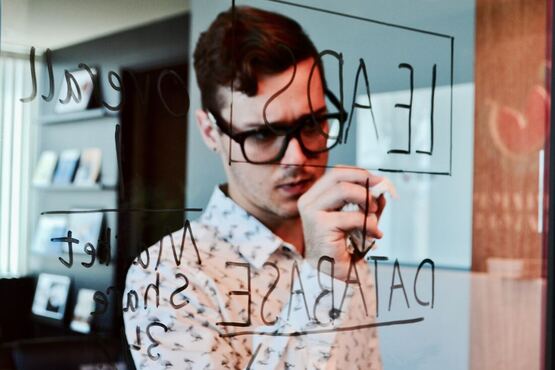
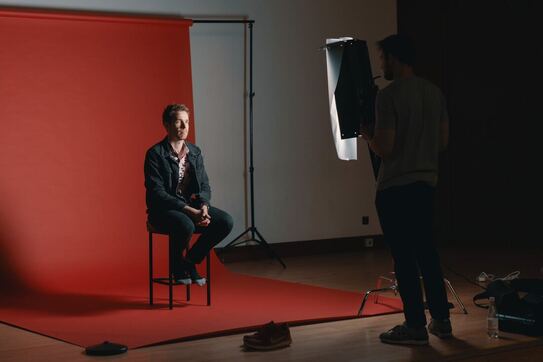
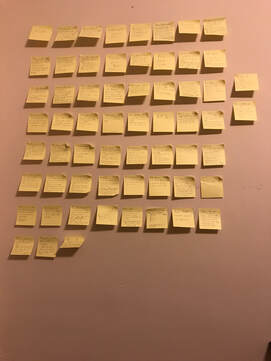




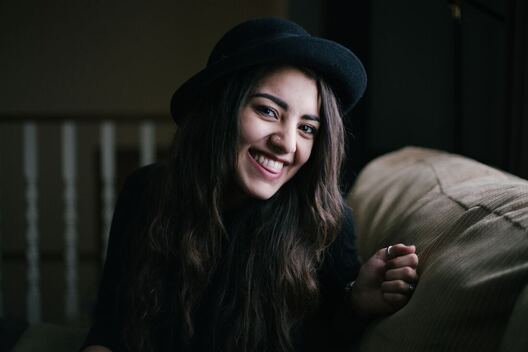
 RSS Feed
RSS Feed